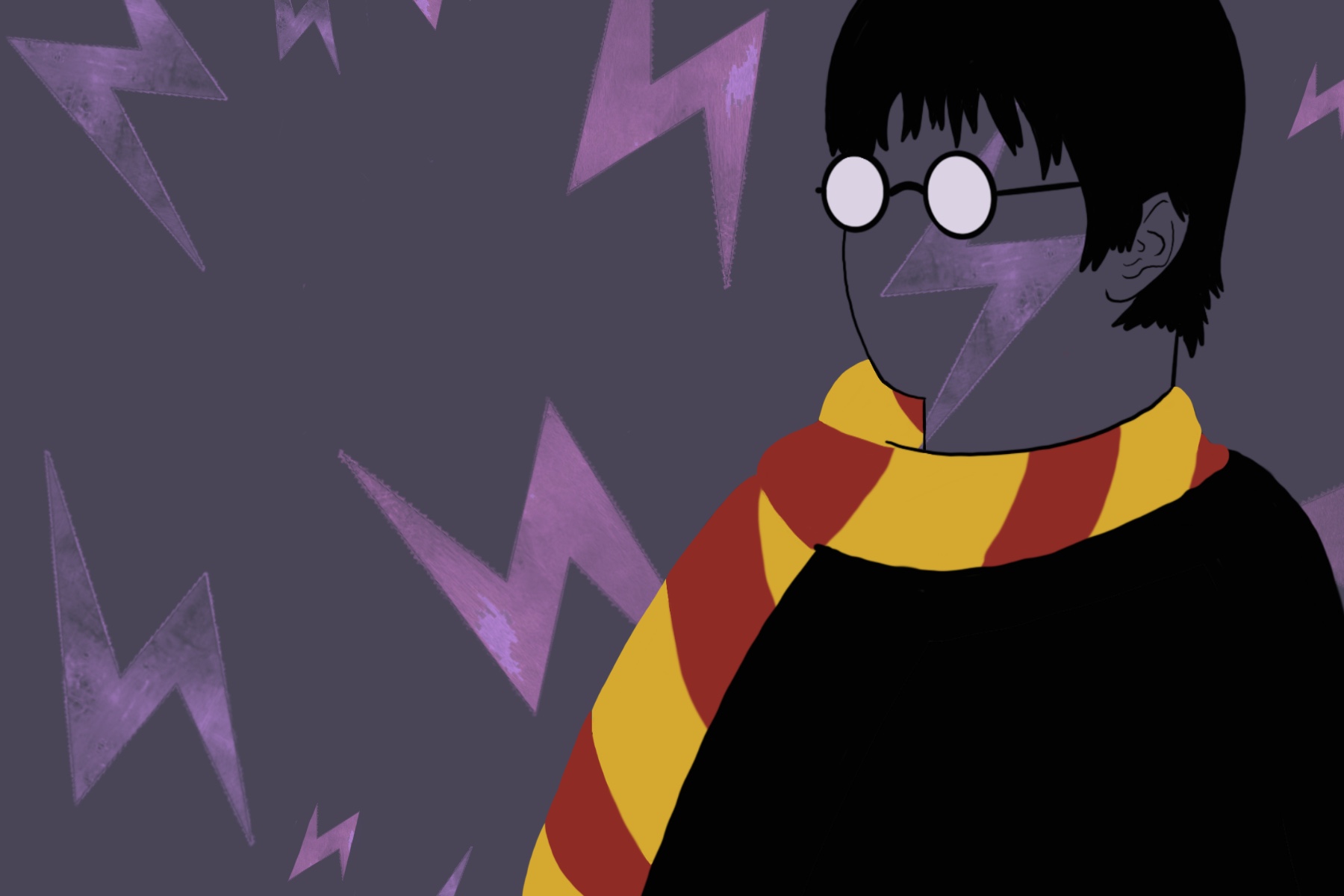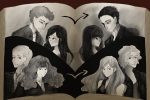It’s been said that rereading a beloved book is something like hunting through an old treasure chest: It teaches you more than it did when you read it the first time. Not just about the stories it holds, but about yourself — who you were when you read it the first time, why you loved it then and who you are now. It’s an explosion of self-discovery contained within a few hundred pages. But exactly how much more can you learn when you pay a visit to a whole world of people rereading the same book? How much more can you discover? This is the project of several hundreds (maybe even thousands) of creators out there who have dedicated a part of their lives to immortalizing the “Harry Potter” books for generations to come.
Among others, there are artists that visualize iconic scenes from the books in unique ways and writers who add to the canon with creative scene setting. But perhaps most recently, a large number of “Harry Potter”-themed podcasts have emerged on the scene with their own visions of expanding and complicating the beloved universe many of us grew up with. They are quite literally broadening and modernizing the conversation, choosing to tackle the same seven books with different lenses and generating insights that complement one another. Though it has been almost 13 years since the publication of the final “Harry Potter” book, the discussions it spurs aren’t stopping.
The attractiveness of podcasts in general revolves around their high accessibility — you can listen to them on your commute without worrying about distractions — and their low barriers to entry: Anyone can make a voice memo and publish it online. Combining that democratization with the near universality of the “Harry Potter” universe has the potential to be extremely lucrative and educational.
One of the most popular “Harry Potter” podcasts currently is “Harry Potter and the Sacred Text,” hosted by Vanessa Zoltan and Casper ter Kuile. The episodes are divided by chapters and are all reread through a unique theme that is revealing of either the characters or plot in some way. Zoltan and ter Kuile apply sacred reading practices to the Potter books — practices that people might typically reserve for the Bible.
To equate “Harry Potter” with something as influential as the Bible might seem like a gross overstatement, but when you stand back and examine the influence of the novels on today’s generation, the effect is at least non-negligible. Zoltan and ter Kuile seem to believe wholeheartedly in the positive influence of these books and treat them as creations intended to provide guidance in our real lives. Each episode, they conduct a sacred reading practice drawn from various religious traditions that are intended to connect the books directly to ourselves or the world around us.
In this way, they modernize the books — they highlight their relevance for an older, more globally-conscious audience that fell in love with them when they were young. The content of the “Harry Potter” books is not actually the most important part of them. It’s what that content can do to complicate the world they exist in.
On the other end of the spectrum is a podcast that certainly does not regard the “Harry Potter” books as sacred texts: “Potterless,” hosted by Mike Schubert. It follows Mike’s journey through the books as a 20-something man who never read them as a kid. As a result, he brings to the books a healthy level of millennial skepticism by gleefully pointing out plot holes and problematic language to his guests — friends of his that have loved the books since childhood. By mixing his suspicious perspective with those of his friends, who provide the necessary dose of nostalgia, he gives his listeners a new angle on the well-loved favorites. Schubert’s unfamiliarity with the books allows him to exercise logic and not take anything for granted.
“Potterless” and “Harry Potter and the Sacred Text” pose captivating questions for the prospect of the famous novels. Both podcasts effortlessly translate the words on the page to the world at large, recognizing and conceptualizing, for example, the allegories that J. K. Rowling includes for racism and classism in her books.
They ask what “Harry Potter” can bring to the ongoing dialogue surrounding modern-day conflicts. And, as Schubert rightly points out in several of his episodes, Rowling has done her readers right by exposing them at such a young age to conflicts that will be or already are a part of their lives. Adults rereading these books get to rejoin the conversation in terms of the good/evil binary that abounds through the books. To present such a staunch moral code is a strength of these novels, and these podcasts that look back on them are a means to disseminate that code.
The democratizing aspect of the Potter books and their podcast pillars is something that can’t be overstated. One of the most fascinating parts about this is how removed the afterlives of the books are from their creator herself. Last December, J. K. Rowling made news because of what was perceived to be a shockingly transphobic tweet.
Having written so prolifically about morality, love and acceptance, this felt like a betrayal for many. But this tweet did not stem the flow of “Harry Potter”-related podcasts. In several small acts of defiance, the books were reclaimed by the podcasters as independent of — and greater than — their creator. “Harry Potter and the Sacred Text,” for one, compiled voicemails from many of those who were hurt, and ter Kuile emphasized the validity of the safety we feel in the Potter books despite Rowling’s implications. The podcast reminded us to keep in mind that humans are fallible; books are not.
What is it about this franchise that makes it so we’re never done talking about it? Why is it so attractive — and why can we always find more things to say about it? These days, people are aware of how rapidly the world is changing, probably more than ever before. In a state of constant tumult, people need footholds — “Harry Potter,” for many, is one of those footholds. What we get out of a text depends on what we’re looking for. By way of podcasts like “Potterless” and “Harry Potter and the Sacred Text,” we get different things every time. There’s always more to say because we make it so.
It’s almost like the “Harry Potter” books have lives of their own, inside our souls.

















